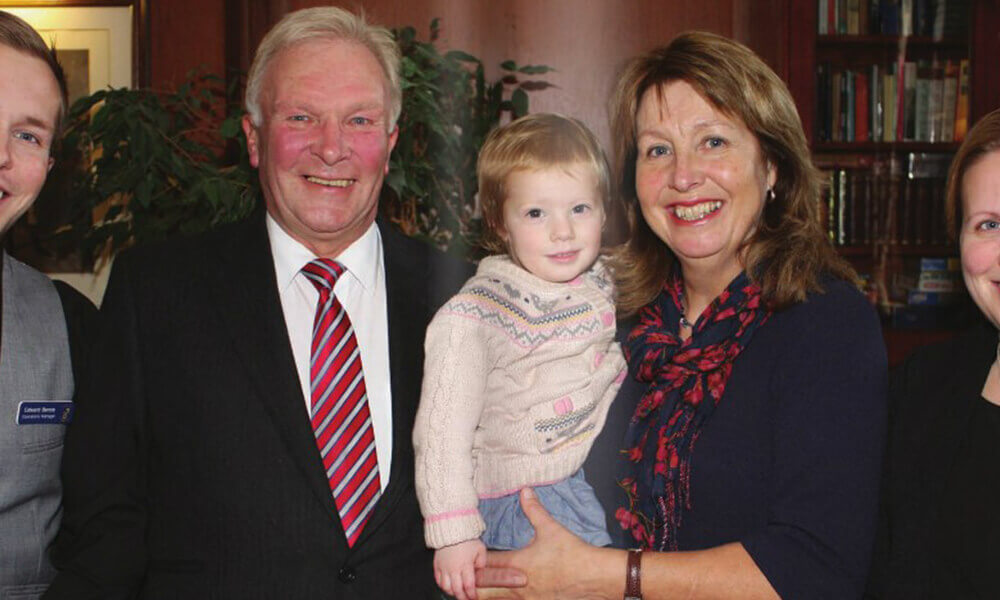
Innovative Leaders: Counted 4
Counted4, based in the north-east of England, was set up to provide high quality, treatment for those suffering from substance misuse, and to address the failings of the existing treatment system. We spoke to John Devitt, Chief Executive, Counted4 Group, to learn more about his strategy for success.
Counted4 is a specialist health and addiction service which provides a full range of flexible testing and treatment options for people who misuse substances. The firm specialises in mental health and provides a comprehensive menu of health and wellbeing interventions in a variety of environments.
From pre-employment medicals and random testing to high level, complex clinical interventions for key staff, Counted4 distinguishes itself from competitors by the range of its services, specialist skills and providing business with choices on how to address these issues. The firm can operate independently or within existing provision, ensuring the integrity of employees and sub-contractors.
John Devitt is Chief Executive at Counted4 Group. An experienced leader, Devitt has had a varied and successful career and has experience in working in a range of sectors and environments including, International Development (The British Council), Enterprise (PNE Group) and Substance Misuse and Primary Care (Counted4 CIC). He is passionate about making a positive impact on peoples’ lives and the wider community and strongly believes in the importance of personal enterprise. A keen martial artist, he teaches Kung fu, and is married with a son and two dogs.
Devitt describes the current business environment in the north-east of England as vibrant and growing. “Despite the decline in traditional industries, and a variety of social and economic problems, The North East is one of the most vibrant and enterprising regions in the UK, but at the same time there is much to do to address health, economic and social inequalities, as the North East has some of the highest rates of substance misuse and mental health problems in the UK (including alcohol, prescribed and over-the-counter medication).”
The North East is leading the field in many areas, Devitt says – especially in terms of exports and medicine (such as the Centre for Life science village in Newcastle), with the new heart unit, stem cell work, DNA mapping, and through Counted4 the integration of substance misuse and mental health services.
This, he says, is driven by the greater awareness of the impact of substance misuse (drugs & alcohol) and unsupported poor mental health, which are estimated to cost UK industry over £30bn a year. “Studies have found that 75% of people using drugs are actually in employment and 44% of those individuals admit to having sold drugs to their colleagues in the workplace. We have seen an increase in companies approaching us to develop testing and support programmes, not just to protect their business and manage risk but as part of their duty-of-care as a good employer.”
Driving success
Devitt feels that to be successful, a business leader needs to possess clarity of vision and tenacity – and the refusal to accept that something can’t be done. “In this highly competitive and often challenging economic environment, you have to be brutally honest about one’s own deficits and understand the importance of building and investing in your people. Recognising the importance of having the right people around you and developing their talent is essential, as you can only be as strong as the weakest link in your organisation.
“I have learnt that success comes from supporting and directing the people around me – it is their skills and expertise that sets us apart,” he continues, “so my role is to ensure that they have the right skills, training and tools for the job and have personal investment in our success. The Tao Te Ching sums this up perfectly: “The Leader doesn’t talk, he acts,When his work is done, The people say, “amazing, we did it all by ourselves!”
Overcoming challenges
Changes in government policy and the reduction of public funds have undoubtedly impacted all working in Counted4’s sector. But, says Devitt, there is growing awareness amongst business leaders of the impact substance misuse and poor mental health has on business effectiveness and competitiveness – and that is something he says has to be addressed. “While these are challenging issues in themselves, we are very positive around the role business will have in helping shaping public and private responses to these issues in society,” he says.
Three years ago, Devitt looked at the future of treatment, and saw that public funding could only continue to decrease and that services would start to deteriorate. “Instead of waiting for death by a thousand cuts, I decided to develop our services to business and embarked on a major change programme. This involved significant investment in our people and systems, and considerable research into the needs of business. I found that while there were plenty of companies selling drug and alcohol tests, many of these didn’t work, and businesses were left entirely unsupported in terms of what to do with an individual who tested positive, or had deteriorating mental health – anxiety, depression etc. As a result we not only supply and carry-out screening and testing programmes, but offer employers support and protection from potential employment tribunals when they need to dismiss, or full support and referral services for key staff who the company wishes to help address their problems and maintain their employment.”
Looking to the future, Devitt says that, whatever the outcome of the general election in May, public services will continue to be stretched and unable to fully meet the needs of business and employees. “We see significant growth in our programmes being adopted by business as a result. Our main challenge will be ensuring that businesses know that they have options in how they choose to deal with these issues, and that we are there to help.”
Web: www.counted4.co.uk





















